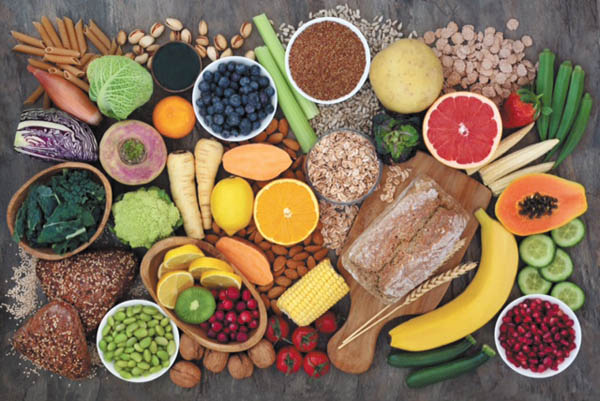March 1, 2021
The MIND Diet Shows Great Promise!
 By Karen McCoy
By Karen McCoy
Lifestyle Coordinator, Ridgecrest Village
You have heard of the Dietary Approaches to Stop Hypertension ((DASH) diet for high blood pressure or the Mediterranean diet for heart health? When it comes to protecting your brain health, a hybrid of the two eating styles may be best. It is called the “MIND” diet. MIND stands for the Mediterranean-DASH Intervention for Neurodegenerative Delay. Research is showing that this diet may help.
This eating pattern goes big on natural plant-based foods while limiting red meat, saturated fat and sweets. And observational studies suggest the diet can reduce the risk of developing Alzheimer’s disease by up to 53 percent as well as slow cognitive decline and improve verbal memory.

Researchers focused on the foods with the most compelling findings in dementia prevention. Vegetables, especially leafy greens, rose to the top. In general, fruit didn’t, though berries made the list. They tracked detailed eating logs in an older adult population for an average of 4.5 years to uncover trends among the diets of those who developed dementia versus those who didn’t. Their discovery: Older adults whose diets most closely resembled the pattern laid out in the MIND diet had brains as sharp as people 7.5 years younger. That’s a substantial difference.
Want to see how your diet stacks up? Give yourself a point for each of the following MIND diet rules you typically follow in your life (up to a max of 15 points).
- At least three servings of whole grains a day
- Green leafy vegetables (such as salad) at least six times a week
- Other vegetables at least once a day
- Berries at least twice a week
- Red meat less than four times a week
- Fish at least once a week
- Poultry at least twice a week
- Beans more than three times a week
- Nuts at least five times a week
- Fried or fast food less than once a week
- Mainly olive oil for cooking
- Less than a tablespoon of butter or margarine a day
- Less than a serving of cheese a week
- Less than five pastries or sweets a week
- One glass of wine or other alcoholic drink a day
You don’t have to have a perfect diet to benefit. While the adults in the study who followed the diet most closely (an average score of 9.6 points out of 15) saw the biggest drop in their Alzheimer’s risk, the ones who scored in the middle (7.5 points) still cut their risk by over a third. Consider targeting just one or two of the habits above to improve your score — and your brain health. Research has shown that following the MIND diet even a moderate amount is associated with a reduced risk of Alzheimer’s disease.
The MIND diet encourages its followers to eat berries, but does not emphasize consuming fruit in general. Currently, there are no set guidelines for how to follow the MIND diet. Simply eat more of the 10 foods the diet encourages you
to eat, and eat less of the five foods the diet recommends
you limit.
To summarize: Load up on vegetables, Make berries your sweet treat, Snack on nuts (and pass on the packaged stuff), Cook with (mostly) olive oil, Embrace meat-free meals, Have fish once a week and Feel free to savor a glass of wine.
Look for more information in next month’s publication.
This information was pulled together from research articles from the Mayo Clinic.
For more information about Ridgecrest Village contact me, Karen McCoy at (563) 388-3563
Karen McCoy is Lifestyle Coordinator for Ridgecrest Village in Davenport, Iowa. For more information about Ridgecrest Village, contact Karen at (563) 388-3563.
Filed Under: Community, Family, Featured, Health & Wellness, News
Trackback URL: https://www.50pluslife.com/2021/03/01/the-mind-diet-shows-great-promise/trackback/


